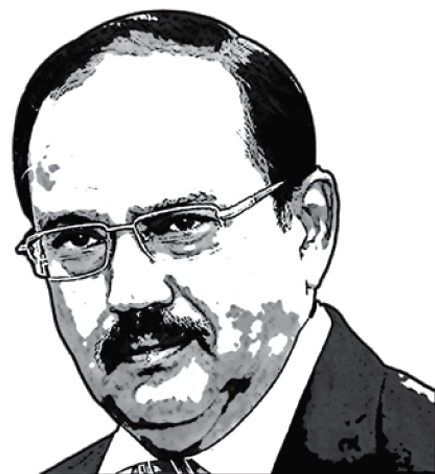Few officers in the government are aware about the activities of the NSA’s office. It is learnt that Ajit Doval, India’s NSA, is the most trusted officer of the Prime Minister. Doval has emerged as the biggest trouble-shooter for Modi. Whether his services are needed in Dubai, Pakistan, Gulf, China or Russia, the NSA’s network comes in handy for the PMO. Doval knows the highest-level officials in these regions. His office is overloaded with work, but lacks competent officers. Thus, Modi reportedly felt the need to revamp his office. The latest appointment is of Pankaj Saran, 1982 batch Indian Foreign Service officer, as the Deputy National Security Adviser (Dy. NSA) for an initial period of two years on a deputation till the date of his retirement, i.e. November 30, 2018. Thereafter, it will be on a re-employment contract basis. Saran is presently serving as the ambassador to Russia. Earlier, he was a Joint Secretary in Manmohan Singh’s PMO. With his appointment, there will be two deputy NSAs, the other being Rajinder Khanna, a former head of India’s external intelligence agency, Research & Analysis Wing (RAW). Khanna was appointed in January 2018. The need to bring in a diplomat into the NSA was possibly felt since both Doval, and his deputy, Khanna, are former IPS officers with experiences in intelligence, not diplomacy. Significantly, some of the former NSAs such as Brajesh Mishra (1998-2004), JN Dixit (2004-2005) and Shivshankar Menon (2010-2014) were retired IFS officers. However, MK Narayanan (2005-2010) during UPA-1 regime was a former IPS officer. Saran also served as India’s High Commissioner to Bangladesh. Yet another significance of the move is that after a long time, Modi has inculcated an officer who has worked in UPA government.
- Cover Story
- Governance
- Global Scan
- Corruption
- State Scan
- Talk Time
- Bric a Brac
- Big Boss
- Cover Story
- Books
- Bric a Brac
- By the Way
- Digging It Out
- Diplomacy
- Editorial
- Eyes Wide Shut
- First Stirrings
- Gfiles Awards
- Governance
- Perspective
- Personality
- Stock Doctor
- Tracking
Recent Posts
© Copyright 2007 - 2024 Gfiles India. All rights reserved powered by Aerial Infotech.
Recent Posts
Related Articles
By the WayNo Women, No Kids. That’s the rules!
Written by Alam Srinivas and Anil Tyagi This is a riddle that not more than...
ByAlam Srinivas and Anil TyagiApril 23, 2025By the WayA New Newspaper in A Town Of #NewIndia
Written by Team These days the media grapevine in Lutyens’ Delhi is buzzing...
ByTeamMarch 26, 2025By the Way‘Saffron Nirmala Sitharaman in Hindu office’
Written by Team FM Nirmala Sitharaman, who has presented a record-breaking seven consecutive...
ByTeamMarch 20, 2025By the WayIs NitishKumar suffering from dementia!
Written by Gfiles Team The whispers are growing into loud decibels. From the...
ByGfiles TeamDecember 28, 2024 - Governance

















































